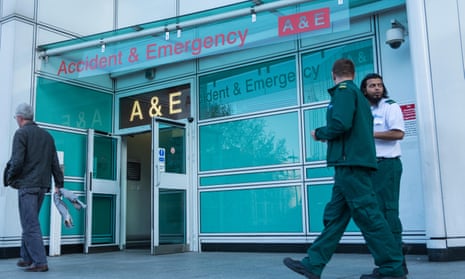During an outbreak of infectious disease, it is crucial that everyone can access healthcare services to help stop it spreading. Public health responses can’t discriminate on the basis of age, sex, race, religion, sexual orientation, economic status or immigration status. This is why the World Health Organization has stressed the importance of ensuring health services are open to all migrants and refugees during the pandemic.
Yet the NHS regulations that restrict free access to services for certain types of migrants and asylum seekers in the UK are still in place, and NHS hospitals are obliged to carry out immigration status and paperwork checks on all patients – including in A&E departments.
As an emergency medicine consultant with a special interest in public health, I find this deeply concerning. A study on the impact of Covid-19 on excluded people in England found that the regulations prevent people with insecure immigration status, including those seeking asylum, from getting medical care when they need it.
The Windrush scandal showed that people fully entitled to free NHS care also struggle to access treatment because of the charging regulations. Cancer patient Albert Thompson was denied treatment for months because he lacked paperwork proving his entitlement to NHS services. And there are already signs that migrants who are too afraid to go to NHS hospitals because of healthcare charges are dying from Covid-19.
Although A&E services are exempt from all NHS charges, staff are still required to carry out immigration status checks. This is a potentially risky policy to maintain during an infectious disease pandemic. Emergency services – A&E and walk-in services – are the first and only contact that some asylum seekers and migrants have with the health system.
Doctors of the World UK, an NGO that provides medical care, information and practical support to those unable to access NHS services, has seen cases where patients in need of emergency care left before triage or seeing a clinician after they were questioned about their immigration status and asked to provide information and paperwork they did not have – leaving the emergency department before triage or seeing a clinician. The NGO estimated that 90% of the patients it saw in 2017 were not registered with a GP.
Last week Doctors of the World UK, Lancet Migration and the Faculty of Public Health launched a campaign calling for the immediate suspension of the NHS charging regulations, an investigation into the impact of charging on both patient and public health, and improved access to all NHS services. Although treatment for Covid-19 has been removed from the regulations, this exemption does not cover pre-existing conditions and therefore will have limited impact on those patients who are most likely to need inpatient care if they do contract Covid-19.
It’s also an exemption that means little on the floor of the A&E department. Patients present with a symptom and not a disease, and the diagnosis of Covid-19 may not be made until 24 hours after the patient has presented to hospital, during which time the clinician is unable to make an assessment of whether the patient is eligible for free NHS care. This fear of being charged will continue to deter patients from seeking emergency care.
The increasing evidence that people of BAME backgrounds are disproportionately affected by Covid-19 makes the need to suspend the charging regulations all the more urgent. There has been a concerning fall in emergency department attendances across all demographics and geographical regions – and this will certainly include vulnerable migrant populations. We can’t risk BAME people facing administrative barriers when they turn up at A&E, or being put off seeking care altogether because they don’t have the right paperwork to hand.
The effect is not only on vulnerable patients. According to a survey of British Medical Association members, the charging regulations increase the workload of clinical staff and take time away from patient care. A&E departments are on the frontline of the Covid-19 pandemic. The use of emergency care staff to gather information and paperwork about a patient’s immigration status is not just inappropriate, it’s a diversion of much-needed resources.
My own research has shown that dealing with these legal and ethical concerns places an unnecessary burden on emergency care clinicians. Health professionals should not be subject to the ethical dilemma of deciding whether to admit a patient because of concerns about who will pay for their care.
The only way to properly protect patients and the nation’s health is to suspend all NHS charges and remove the risk of financial or legal repercussions. Only then will all patients feel safe and able to seek the care they need.
Dr Hooi-Ling Harrison is a consultant in emergency medicine and chair of the Royal College of Emergency Medicine’s special interest group in public health
